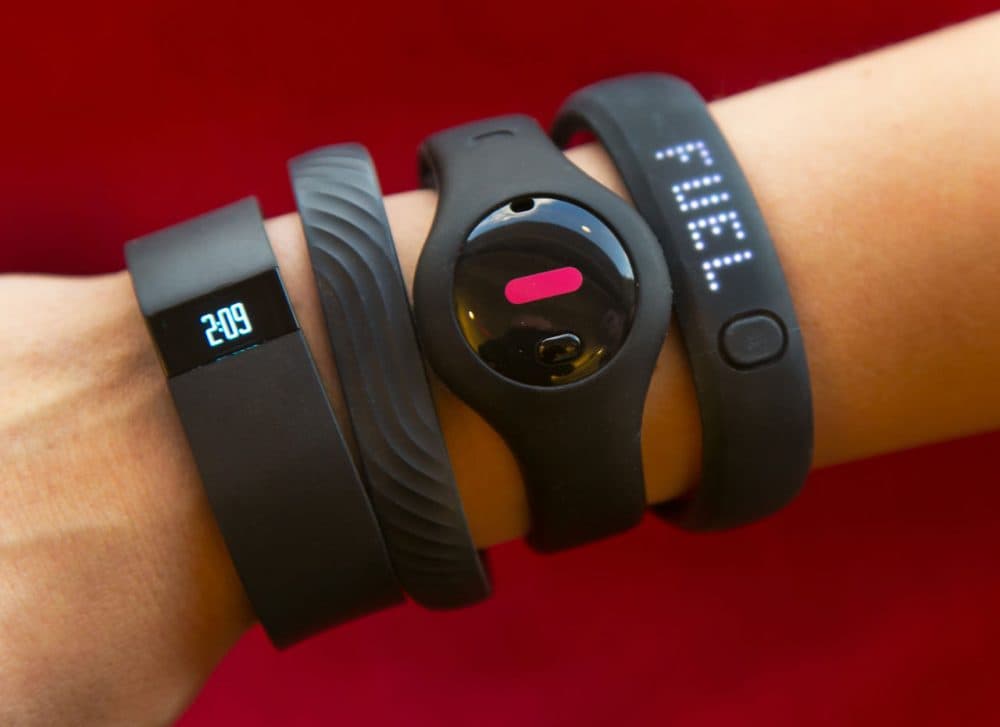Advertisement
John Hancock Taps Fitness Trackers To Breathe New Life Into Insurance Industry

Could 15 minutes of exercise could save you 15 percent on your life insurance?
John Hancock Financial on Wednesday became the first U.S. insurer to offer discounts to policyholders who wear Internet-connected fitness trackers. Sign up for a new life policy today, and the company will send you a Fitbit, one of those bracelets that tracks your steps.
The more you exercise, the bigger discount you get on your insurance premium, up to 15 percent.
Company President Craig Bromley says the policy will also incentivize healthy behavior with "fun sort of rewards" to get policyholders to the gym, like gift cards, discounted hotel stays and leisure travel.
Delaying a death benefit "would obviously be good for us, but also good for them," Bromley said. "You know, other companies are not really helping people to live longer."
It's not just about customers living longer. By leveraging wearable devices and promoting wellness, the 153-year-old company is also trying to bestow a youthful glow on the aging life insurance industry.
"It’s great to be at sort of the forefront of all this technological change, which hasn’t always been the case for the life insurance industry," Bromley said.
It sure hasn't. A recent report from PricewaterhouseCoopers says the life insurance industry could use some reinvention. The report says the number of life policies has gone up from 23 million in 1950 to 29 million in 2010. PWC says that amounts to a 35 percent drop in market share over six decades.
"If anything, [life insurance is] as important or more important than it’s ever been," said Natick-based certified financial planner Tim LePain. Life insurance used to be seen as an investment, LePain said. Not so much anymore.
"It’s less prevalent today because there are many other ways to invest your money," LePain said, citing mutual funds as an example.
Analysts expect other insurance companies to follow John Hancock's lead into wearable technologies and gamification. But will it work? Will more policyholders take up Jazzercise and the Insanity Workout to improve their position on the actuarial table?
"Sure!" said 38-year-old Julie McMahon. "Sure, I’d get cheaper life insurance, for what I do anyway."
Other potential customers are not so sure.
"I hope my insurance company doesn’t do that," said Polly Brown. She has concerns about sharing personal health data for commercial purposes.
Brown said she wants her insurance provider to insure her life, not to try to be her personal trainer.
